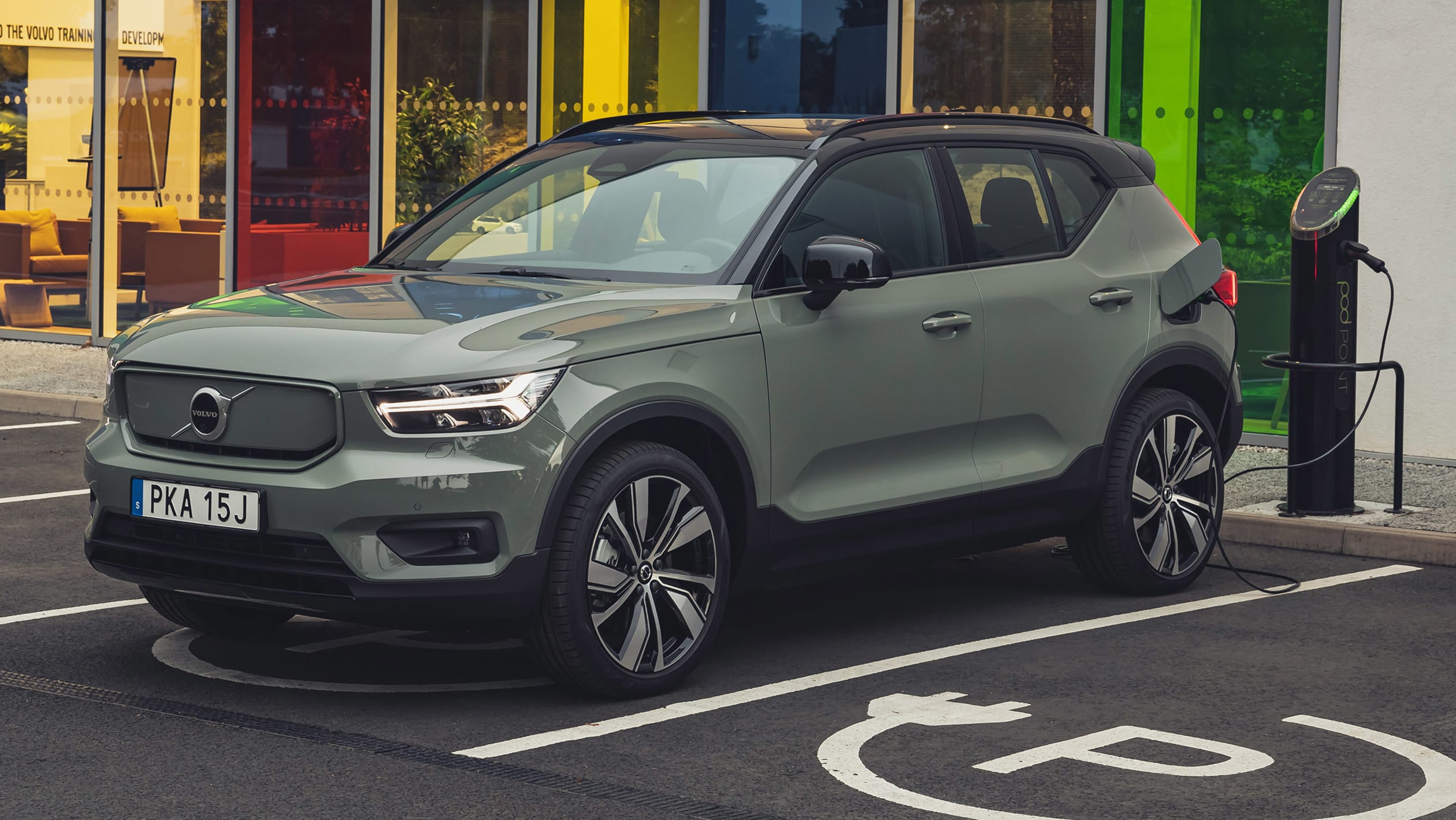 Volvo boss Håkan Samuelsson says his company will be able to meet its target to have half of its sales from full-electric cars by 2025 – but achieving the goal will depend on governments investing in charging infrastructure to help boost customer demand.
Volvo boss Håkan Samuelsson says his company will be able to meet its target to have half of its sales from full-electric cars by 2025 – but achieving the goal will depend on governments investing in charging infrastructure to help boost customer demand.
The Swedish firm has set a goal of selling only plug-in hybrid or electric cars by 2025, with sales split equally between the two across Volvo and sibling brand Polestar, as part of a plan to become carbon neutral in its operation by 2040.
Volvo sold 115,436 Recharge-branded plug-in hybrid and full-electric cars last year, up from 45,933 in 2019 and representing 19.8% of its total sales. Around a third of all Volvos sold in Europe were plug-in hybrids.
Volvo’s first full-electric car, the XC40 Recharge P8, went on sale last year alongside the Polestar 2. Volvo will unveil its second EV, based on the same CMA platform, in March.
Asked by Automotive Daily’s exclusive partner Autocar whether Volvo was on course to meet its ambitious EV target despite having only one such car on sale, Samuelsson said: “We have in our product cycle plan cars that will be ready to have half of our sales electric. That’s ongoing.” Samuelsson added that the challenge is estimating how fast customer demand for EVs will grow.
“What’s more difficult to predict is whether customers will choose those cars, or stay with plug-in hybrids or conventional cars,” he said. “We’re encouraged by the results that [the shift to EVs] goes fast and is getting faster.
“But one thing outside of our control that needs to be better to drive EV take-up is charging infrastructure, which governments need to invest in. Electric cars need high-power chargers along major road networks. That is something that needs to happen fast for 50% of our cars to be electric [by 2025].”
Samuelsson said the growth in demand for an increased number of more powerful EV chargers offers “an interesting new business”. He added: “The big petrol companies should be interested in becoming the number one in charging because that’s the new way of fuelling in the future.”
Samuelsson also urged governments to resist increasing taxes on electricity in order to replace a likely drop in income from fuel duty. “Electricity cost is really important to drive electrification of cars,” he said. “Even with high tax levels today, there’s less tax on electricity than fuel [in most countries], and [the lower cost of electricity] is probably the best driver for electrification.
“If governments really want to promote electrification, I would urge them they should resist the temptation to tax electricity more than today.”
James Attwood




 Volvo boss Håkan Samuelsson says his company will be able to meet its target to have half of its sales from full-electric cars by 2025 – but achieving the goal will depend on governments investing in charging infrastructure to help boost customer demand.
Volvo boss Håkan Samuelsson says his company will be able to meet its target to have half of its sales from full-electric cars by 2025 – but achieving the goal will depend on governments investing in charging infrastructure to help boost customer demand.